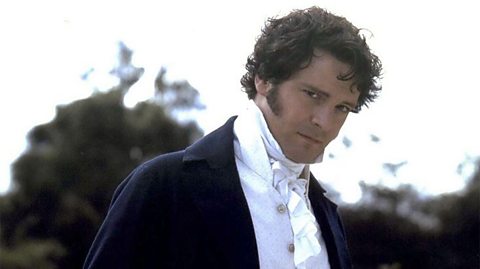Key points
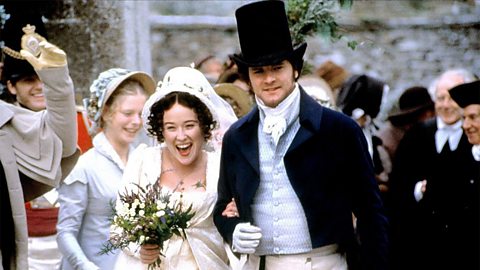
Three of the main themeA theme is a big idea that can be found throughout the text. It is created by repeating images and ideas. Major themes can overlap with other smaller themes and ideas. For example, the theme of love can include the smaller themes of marriage or family. in Pride and Prejudice are love, status, and prejudiceAn unfairly negative attitude towards another person or group..
The author, Jane Austen, creates the theme of love by exploring ideas about marriage and different types of relationships, such as friendships and sisterhood.
The theme of status is used to explore ideas about class in Georgian eraThe time period from 1714 to 1837, during which Britain was ruled back-to-back by four kings all named George. society and the power dynamicsThe balance of power between people when they interact. between men and women.
Prejudice is a central theme of the novel and drives the main part of the plot about Elizabeth and DarcyвҖҷs relationship. It also explains the actions of several characters.


Remember
All the themes explored in Pride and Prejudice are very closely linked to its 19th century Georgian context.
This was a time when wealth and status were important, society was clearly divided along class lines, and men and women were not equal.
The ideas expressed by Austen throughout the text reflect this era.
Love
The plot of Pride and Prejudice is centred around the potential relationships and marriages of the Bennet sisters. As a result, there is a lot of discussion in the novel about what love is or means.
Marriage
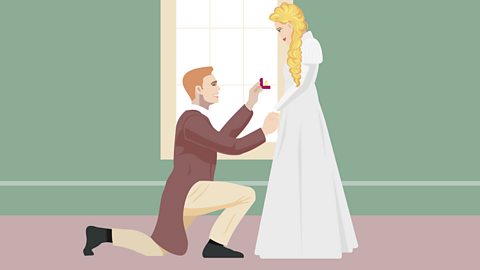
In the upper-class Georgian eraThe time period from 1714 to 1837, during which Britain was ruled back-to-back by four kings all named George. setting of the novel, marriage was often about securing wealth or status, rather than romance. For example:
The courtshipThe time when a couple gets to know each other before a possible marriage. between Jane and Bingley begins because Mrs Bennet sees him as an eligible batchelorSomeone thought to be a particularly desirable potential husband, usually because of their wealth or social status.. Mrs BennetвҖҷs obsession with her daughters getting married is described as вҖңthe business of her lifeвҖқ, which reflects her transactionalLinked to ideas about buying and selling, or exchanging one thing for another. attitude towards marriage.
CollinsвҖҷ marriage proposals to Elizabeth and Charlotte in quick succession happen because it occurs to him that it will be вҖңconvenientвҖқ to have a wife if he inherits Mr BennetвҖҷs money.
Mr Darcy assumes that Elizabeth will accept his first marriage proposal because of his wealth and status.
There is pressure on young women to get married and within the right social class, as seen with Charlotte's desire for a stable life, the panic over LydiaвҖҷs elopement, and Lady CatherineвҖҷs attempt to stop Elizabeth from marrying Darcy.
Elizabeth considers marriage carefully: she knows that she should choose a wealthy man, but she is determined to also marry for love.


Romantic love
Through the many examples of marriage in the novel, Austen allows her readers to evaluate the success of different romantic partnerships.
Mr and Mrs Bennet are ill-suitedNot having the right qualities.: Mr Bennet treats his wife with disdainThe attitude that someone else is not worthy of a personвҖҷs time or respect., often ignoring her, and he is worried about Elizabeth entering a similar marriage.
Jane and Bingley are apparently made for each other, but Austen suggests that their marriage lacks the excitement of Darcy and ElizabethвҖҷs pairing.
Elizabeth and Darcy have a successful marriage with passion, love and respect вҖ“ as well as financial security.
Familial and platonic love
There are strong familial and platonicA relationship that is loving but not sexual ties between many of the characters, often alongside a sense of loyalty.
Elizabeth defends her mother against Darcy and has a good relationship with her father.
Darcy is protective of Georgiana after WickhamвҖҷs attempted elopementIn AustenвҖҷs context, running away to get married in secret. with her when she is just 15 years old.
Darcy is also willing to make sacrifices for his friends: he pays off WickhamвҖҷs debts to help the Bennet family and it is clear that he has supported Bingley throughout their friendship, despite their different personalities.
Jane and Elizabeth complementIf one person complements another, they go well with the other person and make their good qualities more noticeable. each other in their sisterhood. Elizabeth is angry on ElizabethвҖҷs behalf when Caroline implies that Bingley might marry Georgiana, while Jane gently suggests that Elizabeth should be kinder and more patient towards Darcy.
Activity: Context
The novelвҖҷs presentation of marriage reflects the conventions of upper-class Georgian society in the early 1800s.
19th century context: Marriage
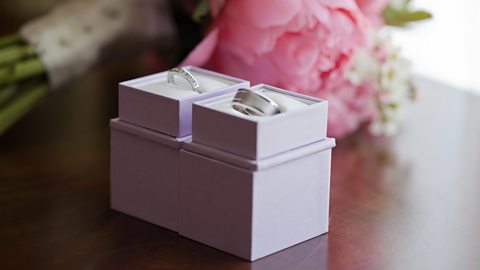
Image caption, Traditions in the Georgian era meant that a familyвҖҷs wealth was passed down to the eldest male relative. Even if a woman came from a rich family, there was no guarantee that she would have enough money to live on independently unless she married. Although upper-class women had some formal education, employment opportunities were almost non-existent. Men were openly criticised if they married women of a lower social class.
Image caption, Once married, men were legally responsible for the financial security of their wives. However, this also meant that the husband became entitled to any income or property that his wife might have. Wives regularly received an agreed amount of вҖҳpin-moneyвҖҷ from their husbands, which was like pocket money, meant to pay for small personal items.
Image caption, Women who did not marry had a low social status and found themselves in a difficult situation within their families. Jane Austen herself never married, and as a result she lived in relative poverty after her fatherвҖҷs death. She often had to rely on the generosity of her brothers for money despite her literary success.
1 of 3
Status
The main characters in Pride and Prejudice are much more powerful than working-class Georgians, but amongst themselves there is conflict about levels of power and influence.
Class hierarchy
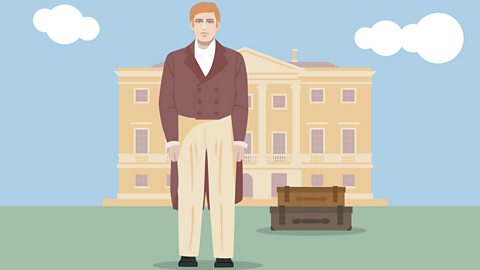
One exploration of status is through the class hierarchiesSystems that organise or rank things according to power or importance. in the novel.
The Bennet family are seen by others as being at the lower end of their social class because they are dependent on their daughters getting married for their future wealth. Both Caroline Bingley and Lady Catherine treat the Bennet sisters with disdainThe attitude that someone else is not worthy of a personвҖҷs time or respect. for this reason.
The Bennet familyвҖҷs slightly lower status also means that they donвҖҷt have the same range of social connections вҖ“ all of which explains Mrs BennetвҖҷs anxiety about getting her daughters married off and her push to get Mr Bennet in contact with Bingley at the first possible opportunity.

Men and women
Despite the start of a womenвҖҷs rights movement in the late 18th century, the Georgian era did not provide equal opportunities for men and women. This power imbalance is seen throughout the novel.
| Georgian upper-class attitudes towards: | For men | For women |
|---|---|---|
| Education | Sent to private schools to study a range of subjects. | Educated at home and taught a limited range of skills, like drawing, sewing and piano playing. |
| Employment | Expected to be self-employed as landowners. | Very limited options, apart from being a paid companionIn this context, a woman paid to live with another woman of good status, to accompany her to events and provide conversation in the home. to another wealthy woman. |
| Legal rights | Had no legal restrictions and had full control over their money and property. | All legal rights belonged to their husbands. Before marriage, money and property would belong to a womanвҖҷs father. |
| Behaviour | Expected to act honourably and respectfully, especially towards women. Can take part in sports. Can do activities independently. | Should be quiet and polite. Entertainment restricted to music or reading. Not allowed to make journeys or meet with a man alone. |
| Family | Head of the household. Expected to marry a woman of similar social status. | Expected to have children and manage staff in the home. |
Property and wealth
Property and wealth are closely linked to status in the novel. Several of the families have made a fortune from trade and buying stocks in shipping companies. This allows them to purchase increasingly large plots of land which provide a yearly income.
BingleyвҖҷs rumoured income is celebrated and gossiped about, as is DarcyвҖҷs even larger wealth. Lady CatherineвҖҷs enormous wealth gives her power and respect, even more than the men in the novel, and ensures that her rudeness is tolerated by many characters.
On the other hand, Wickham is used as an example of how status can be lost when wealth is lost: his gambling debts are seen as shameful and they prompt him to attempt to elope with Georgiana.
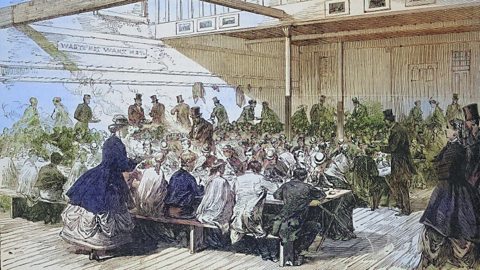
Pride
The title of the novel also suggests that many characters take pride in their status. Mr Collins is an example of this: he invites himself to Longbourn and is boastful about his close friendship with Lady Catherine, labelling it a вҖңtriumphвҖқ.
Even Lydia believes that her marriage to the handsome Wickham elevates her status, and she smugly shows him off when they return to Longbourn.
Despite knowing that she does not have the social status of Darcy or Lady Catherine, Elizabeth has pride in herself and her family and refuses to be treated as lesser.
Finally, Darcy and Elizabeth are also too proud to admit their changing feelings towards each other.
Mini quiz
Prejudice
Austen uses the title of her novel to foreshadowTo hint at a future event. that prejudice is behind the actions of several of her characters.
First impressions
From the opening chapter, Austen provides examples of prejudice based on first impressions.
- Darcy and Elizabeth judge each other harshly when they first meet at the Meryton ball: Darcy because he has overheard Mrs BennetвҖҷs clumsy attempts at matchmaking, and Elizabeth because Darcy snubsInsults someone by ignoring them or treating them badly. her and sounds arrogant.
- Mrs Bennet has made a prior judgement about BingleyвҖҷs suitability for her daughters through what she has heard about his wealth and family. She says he is вҖңa fine thing for our girlsвҖқ.
- Elizabeth is also swayed by WickhamвҖҷs good looks and makes a judgement that he must be a good person.
- CarolineвҖҷs letter to Jane about BingleyвҖҷs romantic intentions creates prejudice against Georgiana, and Elizabeth sees how wrongly Georgiana has been judged when she first meets her in person.
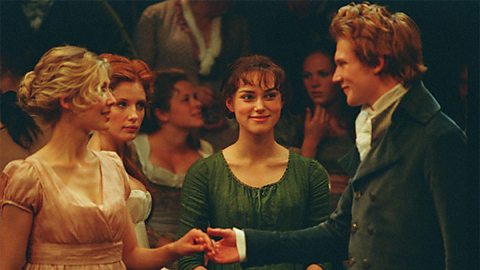
Long-lasting prejudice
Darcy and Elizabeth are the clearest examples of long-lasting prejudice, as a series of misunderstandings deepens their prejudice and causes them to mistrust each other. It takes most of the novel for their feelings to change.
Mr Collins is asked to read something aloud to his cousins for entertainment and when he is given a novel to read from he refuses as вҖҳhe never reads novelsвҖҷ. His prejudice against novels and вҖҳstoriesвҖҷ forces the cousins to find a book of prayer for him to read from instead.
Social prejudice
As well as the individual forms of prejudice explored above, there are examples of social prejudice throughout the novel. This is expressed explicitly by Caroline Bingley, Lady Catherine and Mr Collins at various points in the novel when they treat others differently because of their class or status. Lady Catherine cruelly mocks ElizabethвҖҷs lower status by saying:
вҖңYou are a gentlemanвҖҷs daughter. But who was your mother? Who are your uncles and aunts? Do not imagine me ignorant of their condition.вҖқ
Question
When looking at a theme, think about what messages the writer might be exploring through that theme.
What is Austen trying to convey about prejudice?
Answer
- Characters who are prejudiced, like Darcy and Lady Catherine, take longer or find it harder to experience happiness.
- Prejudice can be felt by individuals or collectively. For example, the upper-class charactersвҖҷ prejudice towards the working classes. Both can be equally unfair.
- Gossip is sometimes seen as unimportant, but it can be very damaging and create an unfair judgement of a person or situation without their knowledge, as with LydiaвҖҷs elopement or the suggestion that Bingley might marry Georgiana.
Quiz
Test your knowledge of the themes in Pride and Prejudice by taking this multiple-choice quiz.
More on Pride and Prejudice
Find out more by working through a topic
- count1 of 5
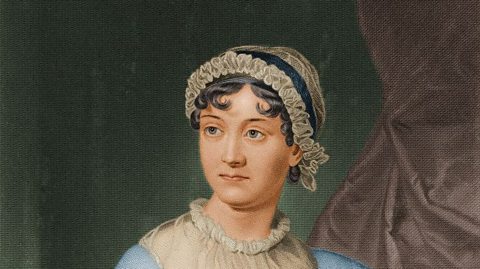
- count2 of 5
